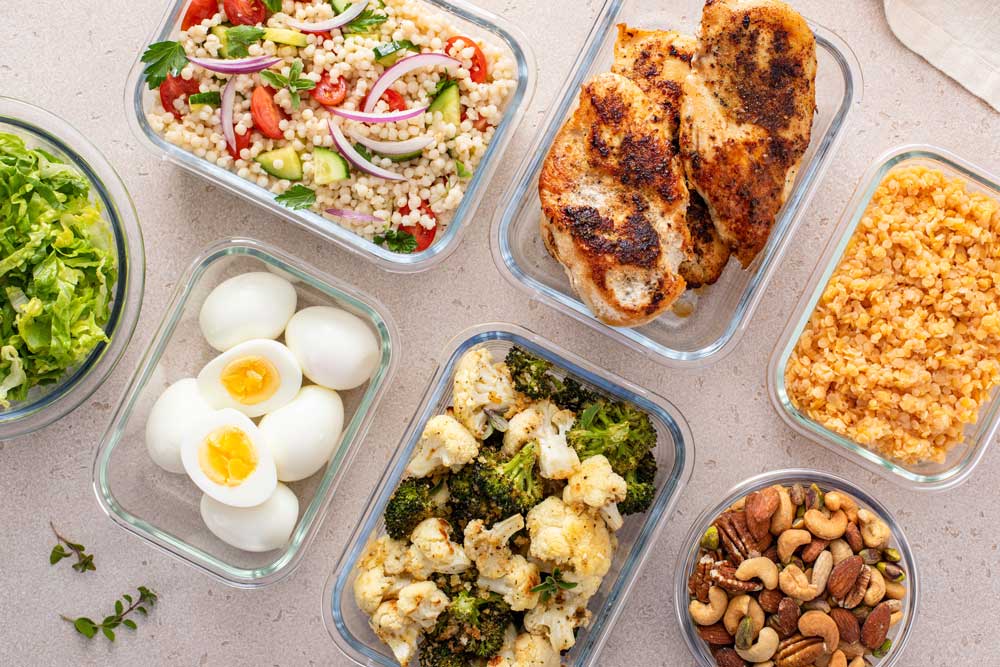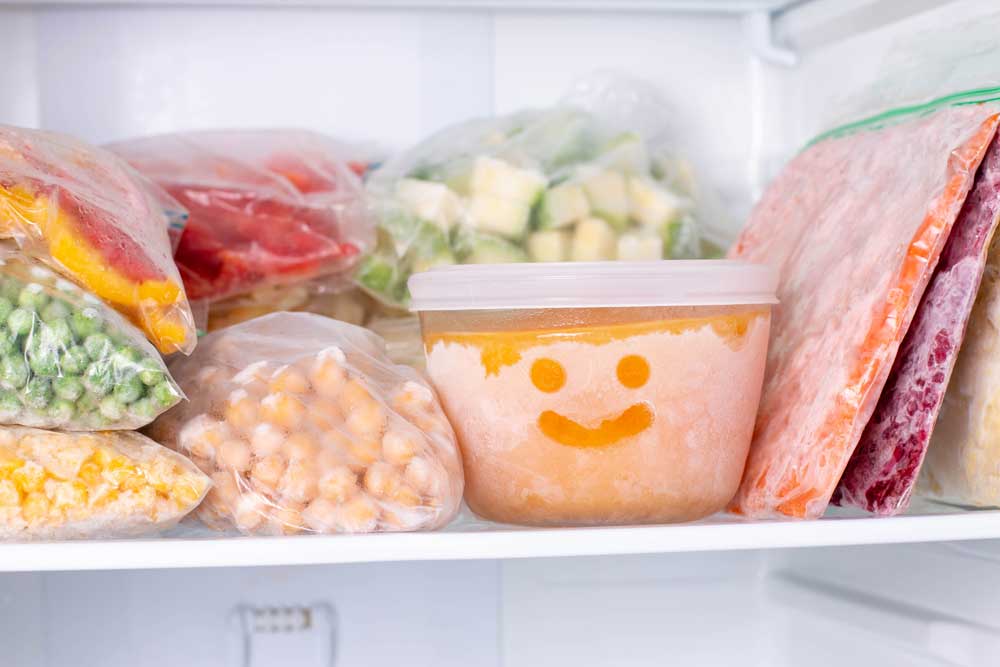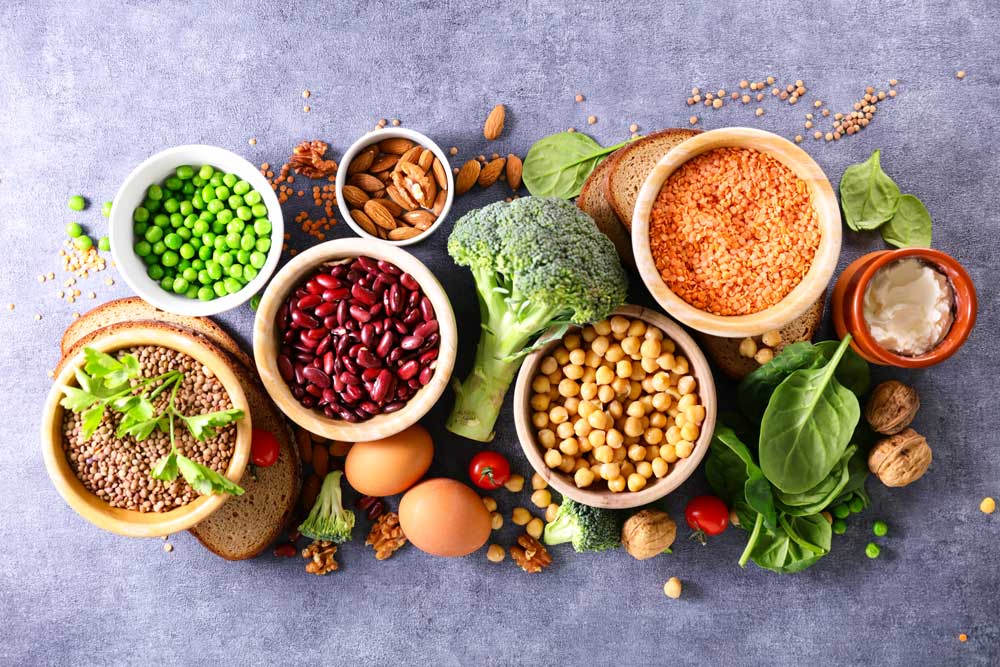Consuming healthy and nutritious food is essential for both your physical and mental well-being. It can significantly impact your energy, mood, weight, and mental and emotional health. However, finding food that is both healthy and reasonably priced can be difficult in a time when there is inflation, food is more expensive than ever with grocery prices jumping up.
There is a false belief that eating healthily has to be expensive. Buzzwords on food labels, such as organic, alternative, and healthy, that frequently accompany with exorbitant price stickers are also to blame for this misbelief. One is going to get the same benefits from blueberries whether you make a pick for regular, frozen or organic ones.
One of the biggest obstacles to maintaining a healthy diet is not just having a limited budget, but also not having enough time. Fast food and processed foods may seem like the ideal choices when you're starving and strapped for time or money. Convenience foods are frequently satisfying and pleasant, stimulating the brain's pleasure centres and making you want to eat more—often to the point of overindulgence. They also frequently lack important nutrients and are high in calories, sugar, and preservatives. Furthermore, contrary to popular belief, eating fast food and processed food is rarely less expensive than preparing nutritious meals at home.
Here are a few ways you can adopt to eat healthy on a budget.

Planning Ahead
Preparation is key if you want to save money at the grocery store. Every week, set aside a day to plan your meals for the next week. Next, list all the groceries you'll need to cook those meals. Don't forget to have a look in your cabinets and refrigerator to see what you already have. Foods that need to be consumed before they expire may be stashed away in the back or you may choose to organise your meals around them. Plan to buy only the things you are certain you will need.

Cook your meals
It can be less expensive to cook at home than to eat out. Typically, feeding a family of four will cost you no more than dining out for one or two people. Thus, instead of deciding to dine out at the last minute, develop the practice of cooking at home. While some people prefer making one meal a day, others find that cooking for the full week on the weekends works best for them.

Bulk Shopping
Studies reveal that bulk supermarkets can help consumers save a substantial amount of money on groceries when compared to speciality markets or traditional grocery stores. When buying in bulk, it is advisable to focus on items that are simple to store, such as rice, pasta, canned products, and spices. Also freezing certain produce you buy in bulk can keep its shelf life longer. Another excellent bulk option is meat and poultry; just remember to split them out before freezing. A word of caution: It's a good idea to forgo buying items like cookies or candies in quantity so you're not tempted to consume them quickly just because you have them in your pantry if your goal is to eat healthily on a budget—not just load up on cheap food.

Make New Meals Out Of Leftovers
Get inventive and use leftovers to create new dinners rather than tossing them out or forgetting about them in the back of the refrigerator.
Soups/stews or stir fries: Use any leftovers to build a base by sautéing onion or garlic, using broth or sauce, or both. To produce distinctive flavours, you can also experiment with herbs and spices.

Burrito special: Most leftovers are excellent as burrito fillers. All you have to do is pile everything into a whole grain tortilla shell, top it with some salsa or cheese, and dig in.
Explore different combinations: You might be amazed at how many diverse flavours go well with one another. Try creating a big green salad, for instance, and topping it with cooked whole grains, vegetables, and leftover meat from another meal.

Frozen Fruits And Vegetables
One of the simplest ways to save money is to buy frozen produce. Furthermore, it's a choice that spares you from compromising on nourishment. Studies reveal that frozen foods frequently have an overall vitamin content that is comparable to, or perhaps even higher than, that of fresh vegetables. There is no disadvantage to purchasing frozen produce—especially when it's the more affordable option. However, in rare situations, minerals like beta carotene may decrease in frozen foods. So, it is advisable to freeze any fresh vegetables you might not be able to finish in time.

Protein Sources
There's no getting around the fact that meat is pricey. Research indicates that animal protein is not only less environmentally friendly than plant-based protein, but also more expensive. For these reasons, you might want to think about incorporating some plant-based foods into your weekly menu. These recipes might use beans, peas, lentils, quinoa, nuts, seeds, or soybean products (like tofu). Plant-based protein sources, like legumes, are packed with protein, fibre, vitamins, and minerals. They can be bought in bulk and are also easy on the pocket. If you want to maintain some animal-based protein sources in your diet, it is best to purchase less tender portions of meat because they are usually more affordable and making eggs the hero in some of your dishes.